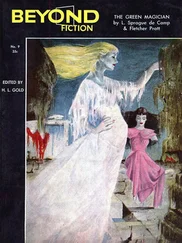Diwan Sahib was hidden by the bushes. I could hear thumping, as if someone was beating carpets. Then my landlord was yelling, “Arre O! Can you hear me? What are you doing?”
The monotonous “ whump-whump ” from below stopped for a minute, then started again. Diwan Sahib stumbled down the slope clutching his pyjama’s waistband and yelling, “Leave the nettles alone, you donkey!” Now we could see him through a gap in the hydrangeas, tall, thin, teetering at the very edge of the slope, looking as if he would trip and roll downhill with his next step.
I half got up, started to call out, “Be careful!” but stopped myself. He detested what he called “clucking”.
“It’s only nettle,” a man’s voice said from below. “I’m not cutting your precious bushes, am I?” His stick hit the bushes again. I stood up to look, and saw that the man had already beaten down many of the high, overgrown nettle bushes into damp green rags. The nettles formed a barrier around the house and protected it from the road a few metres below. The more impenetrable they grew, the more Diwan Sahib rejoiced at keeping prying people out. The nettles would spring back in a month, so there was no need for an argument. But once annoyed, Diwan Sahib was difficult to reason with. He shouted back, “I planted those nettles!”
“Oh yes? Who plants nettle? Weeds — dirty, stinging weeds! He plants them he says.” “ Whump !” The man’s stick began hitting the nettle bushes with even greater force. As the stick came down on the bushes again and again, I winced, imagining the man behind me on a lonely forest road, armed with that stick. “Useless old fool,” we heard the man shout in a harsh voice. “Sanki lunatic! Says he plants nettles!”
“You aren’t young yourself,” Diwan Sahib yelled. “Have you seen how old you are?”
Diwan Sahib came back towards the garden. “Have you seen how old he is? And he has the insolence to call me old.” His white hair stood on end, from his having torn off his cap in a hurry. His dressing gown flapped around his ankles. He had climbed back too quickly and now each gasping breath was accompanied by a whistling sound. He stooped and searched for a glass, one he must have flung into the bushes earlier that morning. He wiped it on his shirt and splashed rum into it from the bottle at the table next to him. Then he sat back in his chair and laughed until it turned into a hacking cough. “Someone’s been attacking the nettle for days, and I’ve never managed to catch the fellow in the act before,” he wheezed. “I recognised him today. He’s that retired forest guard — Himmat says he’s lost his mind.”
Ama said, “Why wouldn’t he have? He’s forever grabbing our sickles and axes and taking them away. Claimed we were stealing wood from the forest. And in secret he was selling our axes in the bazaar. We cursed him, many times. So he went mad.”
“Why don’t you use your curses on a more deserving target — Chauhan, or that politician stirring up trouble?” Diwan Sahib said, picking up his packet of cigarettes.
“You’d better not smoke,” I said. “Your performance is next week, and you can’t cough all the time you’re there, so don’t — ” I stopped as he lit up.
Diwan Sahib had been practising for months and his day at St Hilda’s was almost upon us. Usually he talked of jungle craft and imitated the calls of animals and birds. Sometimes he told the children stories of illustrious Himalayan travellers, old and new, such as Frank Smythe, Edmund Hillary, or Bill Aitken.
“What are you going to do this year?” I asked him.
“This year — ” All of a sudden Diwan Sahib became almost bashful. “This year I want to tell them how fortunate they are. How absolutely fortunate they are. I want your little perishers to understand that.”
“Fortunate? Half of them don’t get enough to eat,” Ama said. “They won’t even have a job when they finish with that school. All this studying is a waste of time.” She gave me a look of concentrated scorn. The day before she had had yet another argument with Charu about the amount of time she was spending at my house on her lessons.
Diwan Sahib ignored her. “I am going to tell them,” he said, “that they must put their ears to the earth and rocks and hear them breathe. Because here in Ranikhet the rocks do breathe. I am going to tell them to listen for one second on their way through the woods to their school for the sound of the sap rising through the trees; to spend one day painting the snow peaks they never bother to look at. They are like people born rich who don’t understand what money is until it disappears.”
“I’d rather have some money and not just the mountains,” Ama said. “You can’t eat mountains.” She made a move as if to leave.
Diwan Sahib was too deep in thought to notice her. He continued, “I want to tell them they live in a corner of the earth where predators still roam free. Where, on an evening’s playing among the trees, they might hear movement in the undergrowth and see a kalij pheasant scuttling away with its mate. Where they do all these ordinary things, like lessons and tuitions and games, and then come home to the call of foxes and owls.”
I said, taking care with my words, “It’s natural for them not to notice owls and foxes calling. They’ve grown up with them. Just as city children pay no attention to car noises — ”
Diwan Sahib looked at me aghast. “A Scop’s Owl like a car noise! Are you off your head?” He was overtaken by another of his coughing fits as Charu rushed in. She never spoke directly to Diwan Sahib, afraid of him or shy; today she ran to his chair and held its arm, panting, and said, in a high, trembling voice, “You have to save Puran. They have arrested his deer.”
* * *
Diwan Sahib changed into a rather grand if crumpled and mothballed grey jacket and white shirt. “You can’t deal with the police and that fool Chauhan in a dressing gown,” he explained when he emerged in his uncharacteristic finery. We had to walk slower than usual because he coughed a lot and had to stop frequently to catch his breath. Halfway there, the drizzle thickened, raindrops were flung into our faces by the wind. Ama hitched her sari to her knees and fished out the plastic bag she kept tucked in her waistband for such eventualities. Her white hair straggled out from under the bag-cap. I rolled up my jeans. By the time we reached the police station, we were cold, soaked, bedraggled.
We charged into the police station, past the shouts of the chowkidar, to the bars of the lock-up. The deer was nowhere to be seen. Instead there was Puran, caged behind the bars. He sat in a corner, whimpering and groaning, scratching his head and slapping his thighs. Tears and snot smeared his face. The room was rank with the effects of rain on his foul-smelling clothes.
The constable sat at her desk looking irritable and shouting for the chowkidar to light some incense. “What do you think? I want him here? I want to throw him out, he smells enough to make me want to cut off my nose,” she said to Ama, who looked frightened and tearful at the sight of her son imprisoned. I had never before seen Ama at a loss for words. Now she slid to her haunches and half-sat, half-crouched on the floor, head in her hands, quite unmindful of the plastic bag that topped it like an upturned boat. Charu stood very straight, holding the bars of the lock-up. Her face had frozen into anger at the constable’s words and she had assumed a fierce, silent hauteur.
The constable had not invited Diwan Sahib to sit. He stood over her desk, still panting, leaning on it with both hands. He drew a wheezy breath and began to explain the situation to her with painstaking, careful courtesy. Puran was a little different from others, he said. He could not talk to people, but he could talk to animals. Animals trusted him. Foxes came to him if he called them. Injured birds arrived on his doorstep to be cured. Dogs with broken legs found their way to his cowshed. It was necessary that he be treated differently because he was incapable of understanding such things as wildlife laws.
Читать дальше












